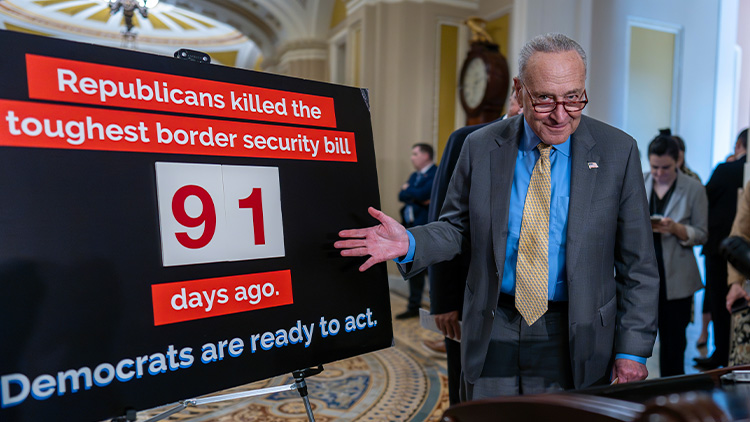How Border Security Measure Failed to Advance in Senate
Introduction:
A border security measure negotiated by a bipartisan group of senators failed to advance in the Senate for the second time in three months, falling short of the required 60 votes. The vote comes as both political parties aim to establish themselves as tough on border security ahead of the 2024 election. Senate Majority Leader Chuck Schumer plans to bring the legislation back up for a stand-alone vote, separate from aid to Ukraine and Israel.
The Importance of Addressing Challenges at the Southern Border:
Schumer emphasized the need for bipartisan action to address the challenges at the southern border. He criticized Republicans for previously blocking the legislation and urged them not to delay any longer. Schumer highlighted the urgency of the situation, stating that calling it an emergency one day and then delaying action the next is unacceptable.
Republican Opposition and Accusations of Political Theater:
On the other side of the aisle, Senate Minority Leader Mitch McConnell criticized Democrats for their renewed efforts and accused them of engaging in cynical Senate theater. Republicans are expected to vote against the legislation as a bloc, viewing it as a purely political effort by Democrats to distract from President Biden’s record on the border. Senator James Lankford, who co-wrote the bill, expressed frustration with the focus on messaging rather than solving the problem.
The Origins of Bipartisan Talks:
Serious discussions about a bipartisan border security package began after Senate Republicans linked foreign aid to Ukraine with legislation to regulate the Southern border. Senators Murphy, Sinema, and Lankford worked behind the scenes for months before unveiling their $20 billion proposal. The package aimed to increase immigration restrictions and enforcement while implementing new migrant policies. However, former President Donald Trump’s influence on Republicans and his call for perfection led to a lack of support for the bill.
Political Finger-Pointing:
Schumer’s decision to bring the border bill up for another vote comes in an election year when immigration and border security are top concerns for voters. Both parties have accused each other of playing politics. Democrats argue that the bipartisan bill is a serious proposal crafted with Republican input, while Republicans claim Schumer is holding a vote on a bill he knows will not pass to distract from President Biden’s border record.
The Likely Outcome and Implications:
The bill is expected to be rejected, even by some Democrats, including progressives. Schumer acknowledges this, but emphasizes the need for bipartisan support. The vote may provide cover for moderate Democrats up for reelection in conservative states. However, Republicans view it as an election-year political stunt. House Speaker Mike Johnson has already stated that the bill will not advance in the House if the Senate votes to move forward.
Conclusion:
The failure of the border security measure to advance in the Senate highlights the ongoing partisan divide on the issue. Both parties are vying to position themselves as tough on border security ahead of the 2024 election. While Democrats emphasize the need for bipartisan action, Republicans accuse them of engaging in political theater. The outcome of the upcoming vote is expected to reflect this divide, with little hope of passing the legislation.

